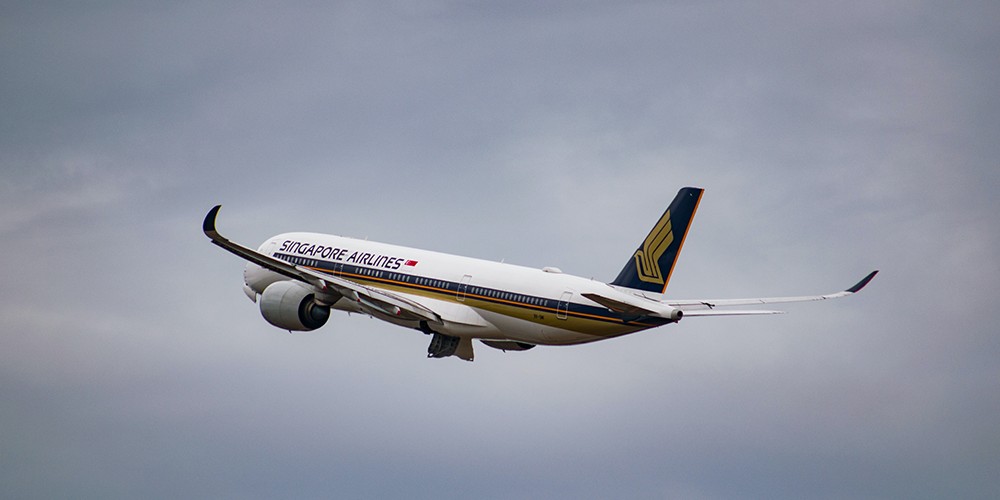 One of the most controversial policy moves of the 2008 financial crisis was the bail-out of the ‘too big to fail’ banks and financial institutions. This use of public money was justified as being necessary to prevent systemic collapse. A similar ‘too many to fail’ refrain is now heard as countless sectors of the global economy are dealing with a triple shock to demand, supply and financing as a result of the Covid-19 pandemic. Financial assistance from public investors is becoming essential for the survival of many companies. Yet, not all countries have the capacity to respond swiftly and decisively. Responses to the aviation industry’s worries are a case in point. In the US, aid from the Federal Reserve and Treasury has encountered delays and sparked political controversies. In contrast, state-linked capitalist jurisdictions such as Singapore, without the same roadblocks, have moved rapidly.
One of the most controversial policy moves of the 2008 financial crisis was the bail-out of the ‘too big to fail’ banks and financial institutions. This use of public money was justified as being necessary to prevent systemic collapse. A similar ‘too many to fail’ refrain is now heard as countless sectors of the global economy are dealing with a triple shock to demand, supply and financing as a result of the Covid-19 pandemic. Financial assistance from public investors is becoming essential for the survival of many companies. Yet, not all countries have the capacity to respond swiftly and decisively. Responses to the aviation industry’s worries are a case in point. In the US, aid from the Federal Reserve and Treasury has encountered delays and sparked political controversies. In contrast, state-linked capitalist jurisdictions such as Singapore, without the same roadblocks, have moved rapidly.
Air travel is one of the industries hardest hit by the economic downturn. Revenues have nose-dived due to restrictions and outright bans on international travel. The International Air Transport Association has estimated that airlines globally could lose more than $250bn in revenue this year. Nonetheless, airlines are high up in many governments’ priority list due to the critical logistics and transportation services they provide. However, like the bail-outs of 2008, financial lifelines extended to the aviation industry and other private corporates hobbled by Covid-19 may be a tough pill for lawmakers and their constituents to swallow, especially in the US.
US Treasury Secretary Steve Mnuchin has insisted that the $25bn in grants, loans and guarantees should not be viewed as carte blanche bail-outs, with the promise that taxpayers will be ‘compensated’ for this financial support. Other key institutions in the US are also scrambling to cobble together emergency responses. On 23 March, the Fed unveiled the Primary Market Corporate Credit Facility, a special purpose vehicle that allows the Fed to provide liquidity to distressed corporations. Although US institutions are taking the right steps to adapt their fiscal responses, as a previous OMFIF commentary highlighted, neither the Fed nor the Treasury were originally intended to function as direct investors to support the economy. Disbursing public investments through knee-jerk institutional jury-rigging is a political decision subject to lengthy bureaucratic deliberation and intense lobbying.
State-linked capitalism has provided more straightforward ways for some countries to support their airline industry. Sovereign investment funds in Asia and the Middle East, such as Singapore’s Temasek, Malaysia’s Khazanah and the UAE’s Dubai Investment Corporation, have taken steps to support their respective national carriers. Singapore Airlines has been given a lifeline by Temasek allowing it to issue nearly $13bn in new equity and convertible bonds. Malaysia’s local airline industry may be given nearly $2.3bn in assistance from Khazanah, while Emirates has the financial backing of the Dubai Investment Corporation. It is unsurprising that sovereign funds and governments alike have recognised airlines as a priority. Airlines hold social, commercial and strategic significance. They serve as a symbol of national prestige, provide employment across several sectors and connect countries to the global economy. Yet bail-outs of other corporates may not be as easy.
Without a well-defined mandate to directly invest in and support strategic sectors, rapid policy responses and financial assistance may be stymied as in the US. In the absence of specialised public investment institutions, thorny questions arise on the long-term desirability, manner and potential market distortions of significant state intervention in the economy. As professionalised investment organisations that can be ring-fenced from short-term politics, sovereign funds can provided rapid financial assistance that is informed by both commercial and social welfare considerations. Countries that lack a specialised institutional architecture dedicated to this – such as the US at the federal level – should closely study existing examples.
As many other sectors simultaneously feel the effects of Covid-19, financing rescue packages will necessitate complementary responses from governments, central banks as well as public sector investors. Massive fiscal expansion will not be easy to push through in many economies, given that high sovereign debt and fiscal deficits are now the norm rather than the exception. A hallmark of the post-Covid-19 world will inevitably be the greater presence of big government in all areas of social and economic life. While there are legitimate concerns about how to manage this unprecedented rise in global public investment, time is of the essence to protect vulnerable companies and livelihoods. The 2020s may well be the decade of a wave of sovereign funds taking their inspiration from Asia and the Middle East.
Brandon Chye is Economist at OMFIF.
